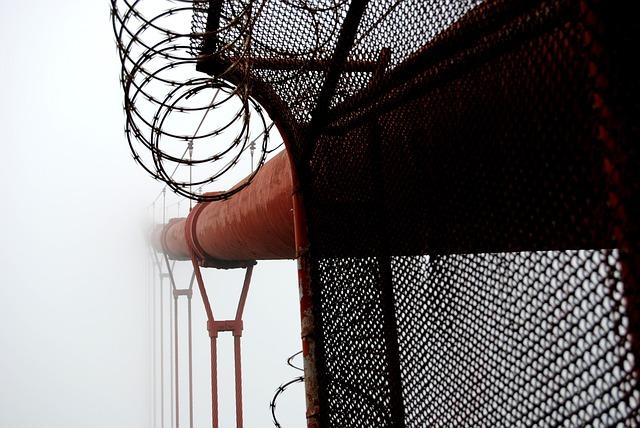San Quentin SPJ Chapter Celebrates a Decade of Advocacy for Incarcerated Journalists
In a groundbreaking milestone for media representation and prisoner rights, the San Quentin chapter of the Society of Professional Journalists (SPJ) is proud to commemorate 10 years of service as the first organization dedicated to incarcerated journalists. Established within the walls of California’s oldest prison, this pioneering chapter has not only provided a unique platform for inmates to express their voices but has also challenged societal perceptions of journalism as a profession. Through workshops, mentorship programs, and the publication of the prison’s own newspaper, “San Quentin News,” the chapter has empowered numerous individuals behind bars to hone their writing skills and share their narratives with a broader audience. As they celebrate this remarkable journey, the San Quentin SPJ chapter underscores the vital role that journalism plays in fostering transparency and accountability, even in the most constrained environments. This article delves into the chapter’s achievements, its impact on the lives of incarcerated individuals, and the ongoing struggle for dignity and representation in the world of journalism.
San Quentin SPJ Chapter Celebrates a Decade of Empowering Incarcerated Journalists
The San Quentin Chapter of the Society of Professional Journalists (SPJ) has marked a significant milestone this year, reflecting on a decade-long journey dedicated to uplifting the voices of incarcerated journalists. Founded in 2013, this pioneering organization has not only provided a platform for individuals behind bars but has also fostered a culture of storytelling and advocacy. Over the years, the chapter has organized numerous workshops, offering valuable training in journalism fundamentals, ethics, and digital media. Participants have honed their skills, enabling them to contribute meaningful narratives that challenge stereotypes and spark conversations around issues of justice and rehabilitation.
As part of its anniversary celebrations, the San Quentin SPJ chapter hosted a special event featuring guest speakers, including former inmates who have successfully transitioned into journalism careers. The program highlighted the chapter’s achievements, such as:
- Publishing a quarterly newsletter that showcases the writings of incarcerated journalists.
- Hosting mentorship programs that connect members with experienced media professionals.
- Promoting advocacy efforts aimed at reforming the treatment of imprisoned individuals.
This remarkable initiative demonstrates the power of journalism as a tool for change, illustrating how storytelling can illuminate the human experience even within the confines of prison walls.
The Impact of Incarcerated Reporting on Criminal Justice Reform
The emergence of incarcerated reporting has become a vital conduit for affecting change within the criminal justice system. By providing a platform for voices often silenced behind prison walls, organizations like the San Quentin SPJ chapter foster dialogue that challenges prevailing narratives. Incarcerated journalists offer invaluable insights into their lived experiences, shedding light on systemic issues including overcrowding, rehabilitation, and the socio-economic disparities that contribute to crime. Their unique perspectives not only humanize those within the system but also raise public awareness and prompt policymakers to take action on necessary reforms.
Moreover, journalism within prisons encourages accountability and transparency in correctional facilities. Incarcerated reporters tackle pressing subjects such as:
- Abuse and mistreatment within prison systems
- Mental health access and support
- Educational programs and their effectiveness
The narratives crafted by these journalists reveal the stark realities of confinement, pressing for improvements that can lead to a more rehabilitative rather than punitive justice approach. The challenges faced by incarcerated journalists highlight the need for continued advocacy for their rights, not only as writers but as essential contributors to the ongoing conversation around criminal justice reform.
Recommendations for Expanding Support and Opportunities for Journalist Programs in Prisons
As the San Quentin chapter of the Society of Professional Journalists celebrates a decade of empowering incarcerated voices, it is crucial to explore avenues for expanding support and opportunities for similar journalist programs nationwide. By fostering an environment that encourages creative expression and professional growth, stakeholders can enhance the rehabilitative impact of journalism in prison settings. Key strategies for this expansion include:
- Partnership Development: Collaborate with educational institutions and non-profit organizations to provide training and resources.
- Funding Initiatives: Secure grants and donations targeted explicitly at supporting journalism programs within correctional facilities.
- Curriculum Enhancement: Develop comprehensive curriculum materials that focus on media ethics, reporting skills, and digital literacy.
- Mentorship Programs: Connect incarcerated journalists with experienced professionals who can offer guidance and support.
Moreover, creating platforms where incarcerated journalists can publish their work is essential to validating their narratives and promoting social awareness. Implementing regular workshops and writing contests can further encourage participation and innovation. To track the impact of these initiatives, an organized framework for measuring success should be established. Below is a proposed activity tracking table that highlights potential metrics for evaluating the effectiveness of such programs:
| Activity | Frequency | Outcome Metrics |
|---|---|---|
| Writing Workshops | Weekly | Narratives produced, participant feedback |
| Publishing Events | Quarterly | Copies sold/distributed, public engagement |
| Mentorship Sessions | Bi-monthly | Participants’ progress, skill development |
In Conclusion
As the San Quentin State Prison’s Society of Professional Journalists (SPJ) chapter celebrates a decade of empowering incarcerated journalists, it not only highlights the resilience of those behind bars but also emphasizes the crucial role of journalism in fostering transparency and understanding within the prison system. Over the past ten years, the chapter has cultivated a unique community where voices often silenced can find expression, creating pathways for storytelling that illuminate the realities of incarceration. As the chapter looks to the future, its commitment to advocacy, education, and mentorship for incarcerated writers is a testament to the enduring power of the press. This landmark anniversary serves not only as a reminder of the strides made but also as an urgent call to continue the work of amplifying underrepresented voices in journalism. The San Quentin SPJ chapter stands as a beacon of hope and authenticity, affirming that the pursuit of truth knows no boundaries.








